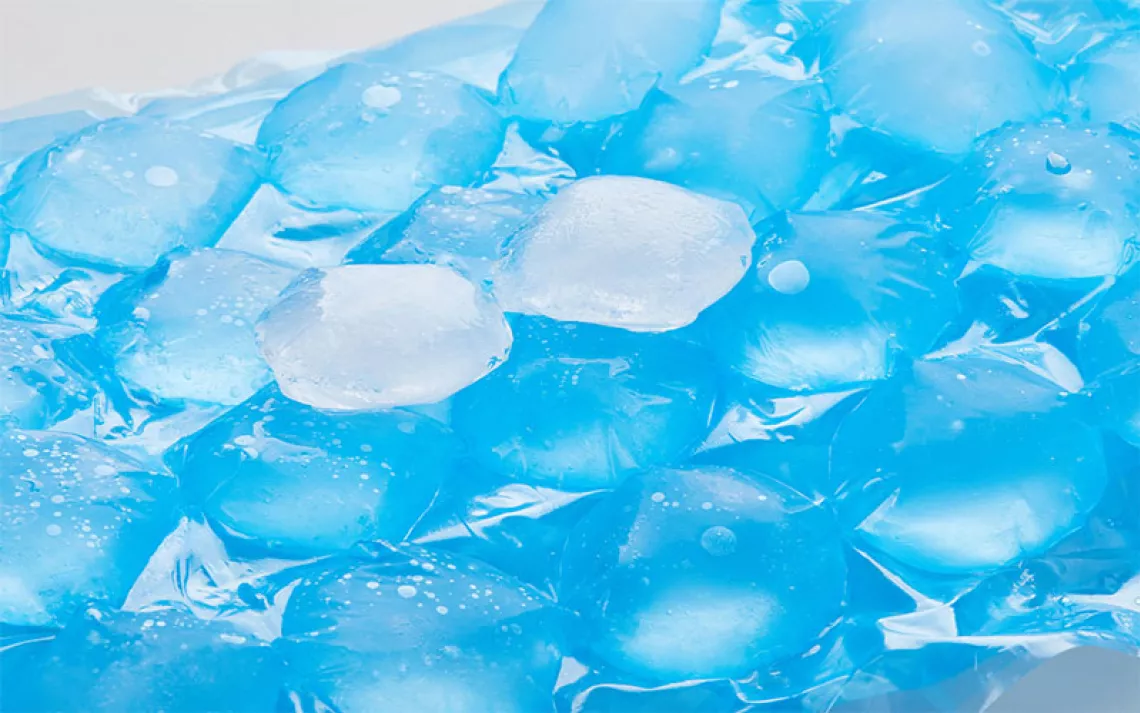How to Buy Sustainable Sex Toys
A guide to less-toxic condoms and pleasure products, and how to make them last

Photo by Anna_leni/iStock
Do you fantasize about sex toys that are made with less-toxic, sustainable materials—ones that are greener for the environment and won’t harm your health with dangerous chemicals? Do you lie in bed wondering if sex toys are recyclable, and what’s the best way to make them last and keep them from gunking up landfills? I do!
The problem is, sex toys aren’t regulated by consumer-safety agencies, so, unfortunately, anyone can claim their products are safe without proper verification.
I set out to find the most equitable and sustainably made toys, gloves, condoms, and lube. I looked for products made by companies and retailers with leaders and staff who identify as queer, nonbinary, transgender, feminist, Black, Indigenous, and people of color (BIPOC), and I looked for goods from worker-owned co-ops. (Some also pack or ship plastic-free or in reused packaging.) I also looked into services that repair damaged and defective vibrators and other devices, services that can help consumers reuse their toys and avoid dumping them into the garbage when they break.
Finding the answers to these questions was a lot harder than it should be. Here's what I found, along with some tips for making your favorite pleasure products last.
How to fix toys (or recycle them)
The best thing you can do to keep a defunct sex toy out of a landfill is to repair it before you replace it. Ask iFixit how to fix almost anything you can imagine. Or watch surprisingly G-rated videos on how to fix a vibrator with corroded batteries or a Hitachi Magic Wand massager.
Unfortunately, no company that claims to recycle sex toys would give me any details on exactly how they do it and in what ways they do it responsibly. Since the sex-toy recycling market seems so squishy, if you can’t repurpose a sex toy that’s beyond repair, remove the electronic parts and take it to a responsible electronics recycler, like ones certified by E-Stewards.
Condoms
The most sustainable condoms and gloves I could find are made by Fair Squared, a company in Germany that ships within Europe and will soon ship to the United States. According to company representative Samantha Prowald, they don’t add petroleum or plastics to their latex products. “We developed a new condom packaging with an innovative paper layer that replaces a plastic film layer, saving at least 40 percent of plastics compared to other brands,” she said. There is no natural lubricant available for prelubricated condoms coated with silicone oil, so Fair Squared created a Sensitive Dry condom with a corn powder coating. And she said their condoms have no cancer-causing nitrosamine, odor maskers, or additives. In general, they also reuse “ugly” boxes and have plastic-free Forest Stewardship Council (FSC) certified product packaging and shipping, even tape.
FSC also certifies the rubber plantation for Sustain’s condoms. Unlike other natural rubber latex condoms, Sustain’s have 70 percent lower protein levels. “The protein in the latex is what causes an irritation or allergy to latex. Our condoms are not hypoallergenic and therefore not safe to use for someone who has a latex allergy,” Meika Hollender, cofounder and president of Sustain, told me. Sustain is now a part of Grove Collaborative, which currently ships plastic-free and is committed to being 100 percent plastic-free by 2025.
Lube
The most sustainable lube I could find was organic, water-based lube from Fair Squared. Those products and many others from Fair Squared are certified vegan and fair trade.
Things to consider when buying sex toys
You might want to avoid so-called biodegradable plastics that aren’t certified compostable. It might be illegal for a product or packaging to be labeled “biodegradable” or “compostable” if it doesn’t have a logo on it from the Biodegradable Products Institute, Din Certco, Vinçotte, or Japan BioPlastics Association. That’s the only way to know for sure if it will compost. Californians Against Waste has more information on how to check if the product claim is legal.
Steer clear of antibacterial, antimicrobial, or Microban products because a cancer-causing chemical (chloroform) can form when it mixes with chlorine in tap water. Also avoid products with a fragrance because they can have toxic phthalates, which are linked to cancer, asthma, and other health conditions. And avoid squishy jelly toys, rubber, vinyl (PVC), or ones that are porous (which can harbor bacteria) such as ABS, TPE, TPR, elastomer, TPR-silicone, SEBS, or “silicone blends.” One ABS yellow toy even had toxic cadmium levels so high that the European Union would have required a radioactive sticker on it.
Consider avoiding silicone in general. Danish Consumer Council, a consumer chemical watchdog, tested nine silicone vibrators and dildos in 2020 and concluded that they emit volatile organic compounds (VOCs, which are “undesirable” for sensitive body parts), have cyclic siloxanes (which can be toxic to fish when they’re washed off), and didn’t meet recommendations for silicone intended for contact with food.
Greener sex toy options
Unlike some brands tested, Fun Factory’s Jam Slim Vibrator was free of polycyclic aromatic hydrocarbons (PAHs) and peroxides. Fun Factory’s website says its toys are in plastic-free packaging, unlike many other brands. And it offers a two-year warranty.
If you’re into accidentally imperfect silicone dildos that aren’t lab-tested, New York Toy Collective sells them at a discount, according to Carol Queen, staff sexologist at the national sex store chain Good Vibrations. It’s the only manufacturer she knows that does that.
Try one that is rechargeable instead of battery-operated, which usually has motors that won't last as long.
If you like glass toys, check out Feelmore Adult, a Black-owned retailer staffed entirely by people of color. It sells the Glas brand, which passed safety tests conducted by Dangerous Lilly (the products don’t bleed mysterious dyes when boiled and are less breakable). Nenna Joiner started Feelmore to heal themselves and the Black community from trauma. Unlike other sex stores, Feelmore allows returns for defective products. “For products that contain motors that no longer work, we sometimes sell them on social media at reduced cost to avoid landfilling them,” Joiner told me.
If you’re into salvaged wood, Come As You Are Co-operative sells NobEssence, which is one of the only brands offering a medical-grade coating. It also sells harnesses from OXYD Creations made of recycled bike tubes. (Good Vibrations also sells harnesses from recycled bike tubes.)
How to make sex toys last
If you don’t want your toy to get dusty or stained from dyes in fabrics, store it in a gently used plastic bag or undyed muslin or cotton bag. Sam Whittle, the owner of Venus Envy, has this advice for consumers: “Remove batteries when not in use to prevent leakage. Electric (plug-in) vibrators like the Hitachi Magic Wand should not be run for more than 20 minutes. Let your electric vibrator cool down between uses.”
How to help shape the world’s first standard for safer sex toys
The International Organization for Standardization (ISO), the world’s largest developer of international standards, is accepting comments from consumers for its voluntary Draft International Standard (DIS) for safer sex toys (called ISO/DIS 3533). You can request that the standard include specifications such as safe limits for toxic arsenic, antimony, cadmium, lead, phthalates, fragrance, PAHs, peroxide or cyclic siloxanes (such as D4, D5, or D6), vinyl, and VOCs. You can submit comments by March 11 to your ISO national member for this standard. If you’re in a non-member country such as the United States, email anna [dot] sjogren [at] sis [dot] se. This page lists the standard’s timeline. You can also request that manufacturers take back their products for free when they break and recycle them responsibly (such as through E-Stewards certified electronics recyclers).
In the meantime, ask manufacturers to post on their websites the lab tests proving their products don’t have the chemical ingredients listed above.
This article has been updated since publication to reflect new instructions for how to submit comments to ISO.
 The Magazine of The Sierra Club
The Magazine of The Sierra Club



